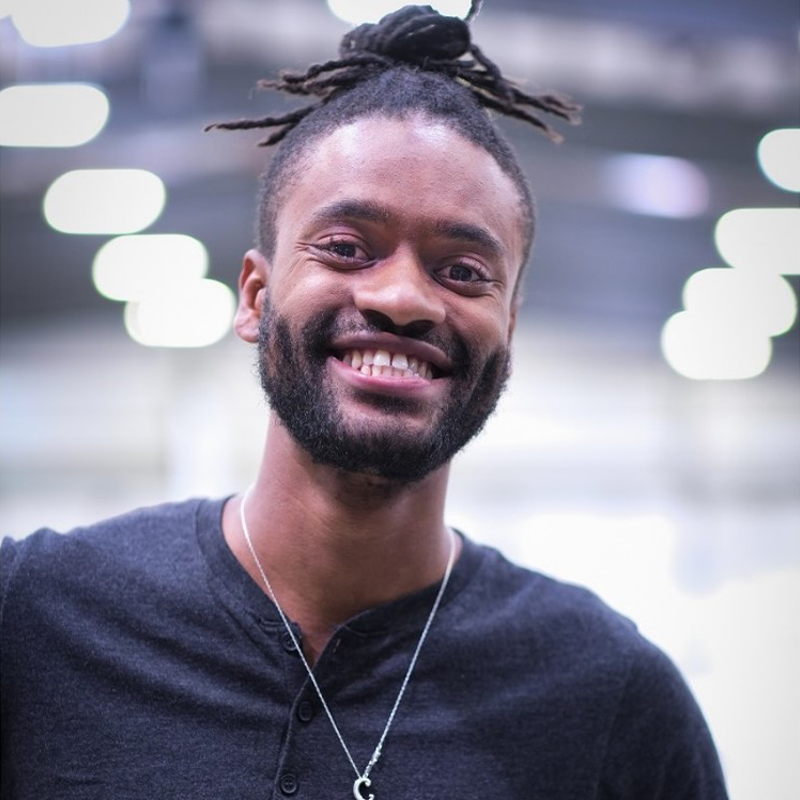Celebrating Black Aerospace Engineers: Chris Huie-Spence (‘11)
Chris Huie-Spence (B.S. ‘11) began working in the pioneering industry of commercial human spaceflight at Virgin Galactic in 2016 as a loads and simulation engineer. Currently part of the leadership team based in Southern California, Huie-Spence is a Group Lead in the flight sciences department, supervising the disciplines of loads, aeroelasticity and thermal. Before joining Virgin Galactic to design spaceships, Huie-Spence spent over five years at Bell Flight working on various rotorcraft programs including the Bell V-280 Tiltrotor, and as a simulation engineer developing and certifying flight crew training simulators around the world. While completing his bachelor’s degree at the University of Maryland (UMD), Huie-Spence was a scholar in the QUEST Honors Program and the Igor Sikorsky Scholarship Program (ISSP), and he conducted undergraduate research at the Alfred Gessow Rotorcraft Center as part of the National Science Foundation’s LSAMP Undergraduate Research Program. As part of the ISSP, Chris also completed three internships at Sikorsky Aircraft in mechanical diagnostics and prognostics and aerodynamics. Originally from Orlando, Fla., Huie-Spence is a science enthusiast and loves inspiring and mentoring the next generation of students interested in science, engineering and aerospace. He is an active member of the Galactic Unite team and is co-founder and coordinator for Galactic Unite’s Black Leaders in Aerospace Scholarship & Training (BLAST) Program. How did you get started on your aerospace engineering journey? While at Maryland, I interned at Sikorsky. However, after graduation I started my career at Bell Helicopter. Who and/or what inspires you? Technology is advancing and accelerating so quickly that I think the future is going to be unrecognizable. That's exciting! I’m thrilled to be a part of it in my current work in commercial human spaceflight. Everyone should get the chance to experience space for themselves. Sci-fi has been teasing us for long enough. I am also inspired by the next generation of scientists and engineers who bring so much hope for our world and society. They are getting smarter and younger, which is an exciting prospect. I can't wait to see what the future holds and what they will accomplish. What has helped you succeed in your aerospace engineering journey? I think the education I received at Maryland in the Clark School was top notch and 100% relevant: structures, controls, aerodynamics, mechanics, statics...literally all of it. Every class I took in Aero has helped my career at one point or another. Also, I attribute my experiences in the QUEST Program which has given me the leadership & and collaboration skills to build my career as a leader and a highly productive engineer. What advice would you offer current students? Treat everyone with respect, keeping in mind that everyone knows something you don't. Stay curious and never stop learning. Don't take the fundamentals for granted. Build up a set of robust and reliable mental models, and revise them often. Lastly, in engineering, defining the problem statement is just as important as finding the solution. Always make sure you're solving the right problem! Ask a lot of questions. What have been some of your greatest personal and professional successes? Black representation in aerospace and especially in leadership is very low. With the support of Virgin Galactic, I co-founded the Black Leaders in Aerospace Scholarship and Training (BLAST) Program to help change that. We are currently supporting about a dozen scholars with mentorship and leadership skills to equip them to enter the workforce as prepared as possible. We even have a Terp in the ranks! As recognition for making positive change in the community, last year I had the opportunity to attend a leadership summit on Necker Island, Richard Branson's private island in the Caribbean, compliments of the Virgin Group.
Related Articles: February 21, 2022 Prev Next |
|


